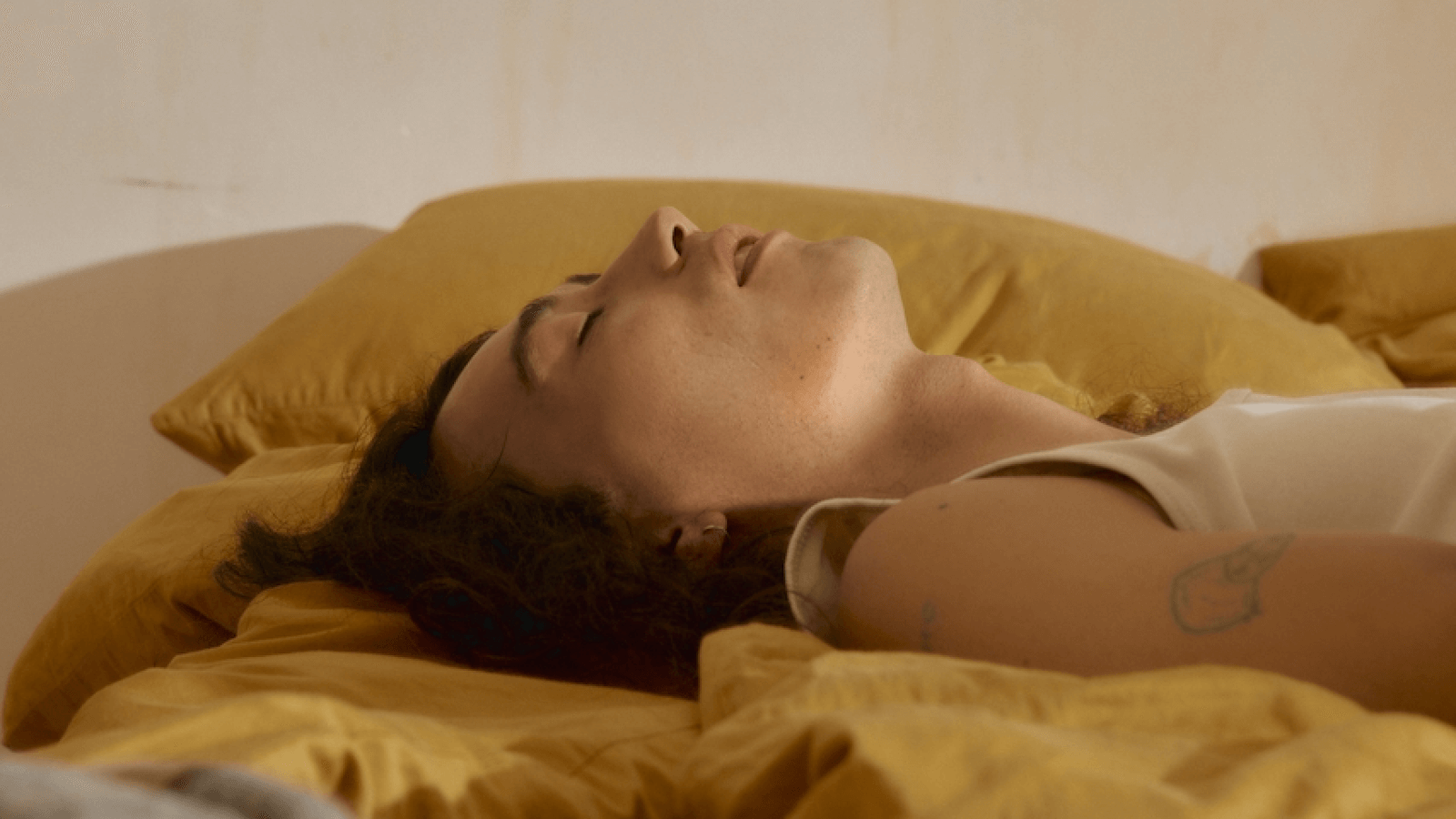Key takeways
Night sweats affect up to 20% of people taking Prozac and are caused by the medication's effects on temperature regulation
While sweating may improve over time for some, it can persist throughout treatment and requires individualized management
Cooling strategies, breathable fabrics, and staying hydrated can help manage symptoms without stopping medication
Night sweats can be one of the most disruptive side effects of taking Prozac (fluoxetine). If you've been waking up drenched in sweat since starting this antidepressant, you're not alone. Understanding why this happens and what you can do about it can help you make informed decisions about managing this common but frustrating side effect.
What Are Prozac Night Sweats?
Defining the Problem
Night sweats from Prozac involve excessive sweating during sleep that goes beyond normal body temperature regulation. Unlike occasional warm nights, these episodes can soak through clothing and bedding, disrupting sleep quality and daily functioning.
Clinical trial data shows that sweating affects approximately 7% of people taking Prozac compared to 3% of those taking placebo. However, real-world studies suggest higher rates, with some research indicating that profuse sweating affects up to 20% of SSRI users.
How This Differs from Normal Sweating
Prozac-induced sweating typically occurs even in cool environments and can happen both during the day and at night. The sweating is often described as more intense and persistent than what people experienced before starting the medication.
Why Does Prozac Cause Sweating?
What Prozac Does in the Body
Prozac belongs to a class of medications called SSRIs (selective serotonin reuptake inhibitors). Rather than simply "increasing serotonin levels" as commonly described, Prozac affects how serotonin functions at various receptor sites throughout the body. This includes areas that control temperature regulation and the autonomic nervous system.
Impact on Temperature Control
The medication can interfere with the body's normal thermostat function. Serotonin plays a role in regulating body temperature, and when Prozac alters serotonin signaling, it can trigger the body's cooling mechanisms even when cooling isn't needed.
Individual Variation
Not everyone experiences sweating as a side effect. Factors that may increase susceptibility include:
- Individual sensitivity to serotonin changes
- Dose of medication
- Duration of treatment
- Other medications being taken
- Overall health status
How Common Are Night Sweats with Prozac?
Clinical Research Data
Studies examining Prozac side effects consistently identify sweating as one of the more common physical symptoms. In combined clinical trial data for major depressive disorder, OCD, bulimia, and panic disorder, 7% of patients taking Prozac reported sweating compared to 3% taking placebo.
Real-World Experience
Naturalistic studies suggest even higher rates in clinical practice. Research examining patient-reported side effects found that profuse sweating was among the most frequently reported side effects for SSRIs, along with dry mouth, sexual dysfunction, and weight gain.
Comparison with Other Antidepressants
Different antidepressants have varying rates of sweating as a side effect:
- SSRIs like Prozac: 7-20%
- Venlafaxine (SNRI): Up to 32%
- Tricyclic antidepressants: Around 20%
- Mirtazapine: Approximately 14%
Does Prozac Sweating Go Away?
Timeline Expectations
The duration and intensity of sweating varies significantly between individuals. Some people find that sweating decreases after the first few weeks as their body adjusts to the medication. However, others experience persistent sweating throughout their treatment.
What Research Shows
Studies indicate that while some initial side effects may diminish over time, sweating can be a persistent issue for many users. Research examining long-term SSRI use found that the risk of side effects, including sweating, may actually increase with each year of use.
Factors Affecting Duration
Several factors influence whether sweating improves over time:
- Individual physiology: Some people adapt better to medication effects
- Dose stability: Dose changes can trigger new or worsened sweating
- Treatment duration: Longer-term use may be associated with persistent symptoms
- Overall health: Other medical conditions can influence sweating patterns
Important Considerations
It's crucial to understand that antidepressant side effects and withdrawal are highly personalized experiences. While some people may see improvement in sweating over weeks or months, others may experience it as a long-term side effect requiring ongoing management strategies.
When Night Sweats Might Be More Concerning
Distinguishing Normal Side Effects from Serious Reactions
While sweating is a common Prozac side effect, certain symptoms warrant immediate medical attention. Serotonin syndrome is a potentially life-threatening condition that can include sweating along with:
- High fever
- Rapid heartbeat
- Muscle rigidity
- Confusion or agitation
- Coordination problems
- Severe nausea or vomiting
Signs Requiring Medical Evaluation
Contact your healthcare provider if you experience:
- Sudden onset of severe sweating
- Sweating accompanied by chest pain or difficulty breathing
- Signs of dehydration from excessive fluid loss
- Sweating that significantly impacts your quality of life or sleep
Managing Prozac Night Sweats
Practical Sleep Environment Changes
Temperature Control:
- Keep bedroom temperature between 60-67°F (15-19°C)
- Use fans or air conditioning for consistent airflow
- Consider a cooling mattress pad or pillow
Bedding and Clothing:
- Choose moisture-wicking, breathable fabrics like bamboo or merino wool
- Use lightweight, layered bedding that can be easily adjusted
- Keep extra sheets and sleepwear nearby for quick changes
Lifestyle Modifications
Hydration Management:
- Stay well-hydrated during the day but limit fluids before bedtime
- Keep water nearby to replace lost fluids after night sweats
- Consider electrolyte replacement if sweating is excessive
Timing Considerations:
- Discuss with your healthcare provider whether changing the time you take Prozac might help
- Some people find morning dosing reduces night sweats
- Avoid hot showers, spicy foods, or alcohol close to bedtime
When to Consult Your Healthcare Provider
Consider discussing sweating with your healthcare provider when:
- It significantly impacts your sleep quality or daily functioning
- Simple management strategies haven't provided relief after several weeks
- You're considering stopping the medication due to sweating
- You want to explore alternative treatment options
Your provider might suggest dose adjustments, switching to a different antidepressant, or additional strategies for managing symptoms.
Prozac Withdrawal and Sweating
Sweating as a Withdrawal Symptom
Sweating is also a common symptom of SSRI withdrawal or discontinuation syndrome. If you've been taking Prozac and are considering stopping or reducing your dose, sweating may occur as part of the withdrawal process alongside other symptoms like dizziness, nausea, and sensory disturbances.
Important Tapering Considerations
Antidepressant withdrawal is very personalized. While some people may experience mild symptoms that last only days or weeks, others can experience prolonged symptoms that are sometimes mistaken for relapse of their original condition.
Several factors increase the risk of severe and prolonged withdrawal symptoms, including:
- Length of time on the medication
- Dose being taken
- Individual sensitivity to medication changes
- Speed of dose reduction
- Whether other medications are being taken
Half-Life and Withdrawal
While Prozac has a longer half-life than many other SSRIs, which may contribute to fewer acute withdrawal symptoms, it's important to note that just because the drug has left the body doesn't mean the changes to the brain caused by chronic use have all reversed. Therefore, the risk of prolonged withdrawal symptoms still exists as the brain adapts to the absence of the medication.
Conclusion
Night sweats are a genuine and relatively common side effect of Prozac that can significantly impact sleep quality and daily life. Understanding that this is a recognized medication effect—not something you're imagining—is an important first step.
Every person's experience with medication side effects is unique. While some may find their sweating improves over time, others may need to actively manage this side effect throughout their treatment. The key is finding strategies that work for your individual situation, whether that involves environmental changes, lifestyle modifications, or working with your healthcare provider to explore other options.
Considering Coming Off Prozac? Outro Can Help
If you're experiencing night sweats or other side effects from Prozac, you don't have to navigate this alone. At Outro, we understand the complexities of antidepressant experiences and support informed decision-making about mental health treatment. Whether you're looking for strategies to taper off Prozac, having accurate information and proper support can make all the difference in your journey toward better mental health.
Want to explore tapering?
Book a free discovery call with the Outro team.
The information provided on this page is for educational and informational purposes only and is not intended as medical advice. It should not be used to diagnose, treat, cure, or prevent any medical condition. Always seek the guidance of a qualified healthcare professional with any questions you may have regarding your health, medical condition, or treatment. Never disregard professional medical advice or delay in seeking it because of something you have read here. If you are experiencing a medical emergency, please call 911 (or your local emergency number) immediately.
Cartwright, C., Gibson, K., Read, J., Cowan, O., & Dehar, T. (2016). Long-term antidepressant use: Patient perspectives of benefits and adverse effects. Patient Preference and Adherence, 10, 1401-1407.
Davies, J., & Read, J. (2019). A systematic review into the incidence, severity and duration of antidepressant withdrawal effects: Are guidelines evidence-based? Addictive Behaviors, 97, 111-121.
FDA. (2017). Prozac (fluoxetine hydrochloride) prescribing information. Retrieved from https://www.accessdata.fda.gov/drugsatfda_docs/label/2017/018936s108lbl.pdf
Horowitz, M. A., & Taylor, D. (2019). Tapering of SSRI treatment to mitigate withdrawal symptoms. The Lancet Psychiatry, 6(6), 538-546.
Moncrieff, J., & Horowitz, M. A. (2023). The Maudsley deprescribing guidelines: Antidepressants, benzodiazepines, gabapentinoids and Z-drugs (2nd ed.). Wiley Blackwell.
Van Geffen, E. C., Hugtenburg, J. G., Heerdink, E. R., van Hulten, R. P., & Egberts, A. C. (2011). Discontinuation symptoms in users of selective serotonin reuptake inhibitors in clinical practice: Tapering versus abrupt discontinuation. European Journal of Clinical Pharmacology, 67(5), 507-512.
.png)




